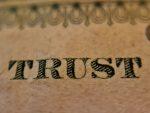Building value in smaller commercial retail real estate necessitates a multifaceted approach, encompassing several key strategies: Prime Location Selection: The cardinal rule remains "Location, … Read More about Strategies for Enhancing Value in Smaller Commercial Retail Real Estate
Main Content
Featured Article
Previously Featured Articles

3 Things to consider when purchasing business insurance
By Bobby
No matter the type of business being run, having business insurance is very important. Although you hope you never need to use your business insurance, one day you may need to and by having a … Continue Reading about 3 Things to consider when purchasing business insurance

Smart Strategies: Maximizing Your Car Budget Wisely
By Bobby
Life is made so much easier with a car or any kind of personal vehicle. Your freedom becomes even more expensive, and you don’t have to rely on others to get to places. It’s not something that you … Continue Reading about Smart Strategies: Maximizing Your Car Budget Wisely
Articles

Designing Inspiration: How to Create an Office Space That Boosts Creativity and Productivity
By Bobby
The design of an office space goes beyond aesthetics; it's a pivotal factor that influences creativity and productivity at work. A well-thought-out office design not only caters to the physical … Continue Reading about Designing Inspiration: How to Create an Office Space That Boosts Creativity and Productivity

How a Powerful Online Presence Makes Your Business Unstoppable
By Bobby
Being a business owner, you should face it: if you're online, you're taking advantage of a massive opportunity. The way people find businesses has changed, and a solid online presence is now essential … Continue Reading about How a Powerful Online Presence Makes Your Business Unstoppable

6 Factors to Choosing the Right Commercial Roofing Service for Your Business
By Bobby
Are you planning a roof replacement for your business? Don't just call any contractor. Choosing the right commercial roofing service for your business is crucial for a smooth project and lasting … Continue Reading about 6 Factors to Choosing the Right Commercial Roofing Service for Your Business

Navigating Uncertainty: Strategies for Managing Risk in Large-Scale Farming
By Bobby
Large-scale farming is a worthy investment, albeit you ought to get it right if you are to get the returns on what is often a huge investment. Just like any other venture, there are several … Continue Reading about Navigating Uncertainty: Strategies for Managing Risk in Large-Scale Farming

10 Things Everyone Should Know About Trusts
By Bobby
While many people know and understand the importance of having a will, more people should know that personalizing your estate plans and reducing tax payments for your beneficiaries is achievable with … Continue Reading about 10 Things Everyone Should Know About Trusts

Timepiece to Treasure: Maximizing Your Watch Investment for Profit
By Bobby
Remember that time you first strapped on a sleek dress watch? That feeling of classic elegance on your wrist? It turns out that some watches have become even more special over time. They aren't just … Continue Reading about Timepiece to Treasure: Maximizing Your Watch Investment for Profit
